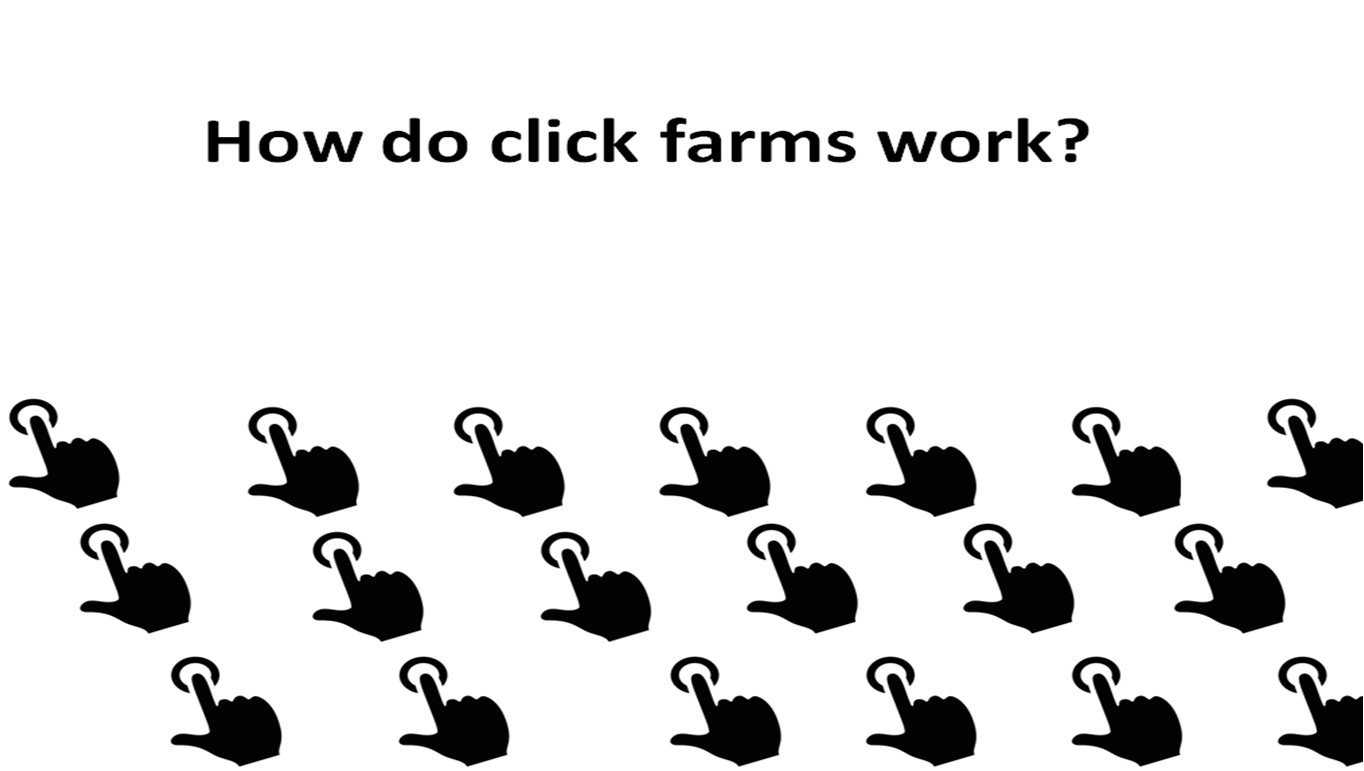How do click farms work?

source: own elaboration
Click farms are forms of online fraud and should be treated as such. Their operation is based on creating large amounts of artificial traffic on behalf of advertisers or their competitors. Although in theory they are associated with clicks, the development of online marketing has expanded their activity to acquire likes, followers, shares and views of YouTube videos. How do click farms work?
Click farms are most often established in developing countries such as India, China, Sri Lanka, Nepal, Egypt and Indonesia. This is due to the low cost of renting and the purchase of a large amount of electronic equipment, as well as unlimited access to cheap labor.
The farm owner finds the right location and rents a room, which is then filled with electronics, mainly cheap smartphones. The devices are usually mounted on specially prepared tripods supplying them with power, at short intervals from each other, so that they form a vertical wall of telephones, as in the drawing below. This arrangement of equipment allows employees to click more efficiently (and therefore simply faster).

Then employees are organized. The group of employees acquired by the farm's founder clicks on paid advertising links placed on websites belonging to the owner of the farm, or other websites commissioned by external advertisers. In some farms, employees only click on links, in others they also fulfill other additional conditions. For example, they browse the destination page for a specified period of time, subscribe newsletters, play videos or perform other activities assigned to them.
We should mention, that the employees of such farms work for a very small salary. For a thousand likes (or other activities) they receive a salary of about one US dollar (about 3.80 PLN). For many people, earning a living by clicking is a tempting alternative, especially in countries where it is difficult to find legal employment. Farm owners sell the same number of likes for a several times higher rate (as reported by various sources depending on the type of activity for 1,000 activities, the farmer is paid between 9 and 13 US dollars).
Click farms have flourished since they adapted and used their potential in social media. Farm employees use their accounts or create fictitious ones to like, follow and share posts on specific fanpages. But getting likes, followers and reactions is not enough. For several years, click farms have also been offering massive views of YouTube videos to their clients.
The situation is different in the case of automated farms - the number of employees is significantly lower. The workers sit at the computers and use specific programs to send commands to the devices. Thanks to this, no one has to physically click on ads or perform other activities. However, with such farms, the owner renounces the basic advantages of this solution. The traffic originating from them is generated by bots and much easier to capture by security algorithms.
Increased popularity of virtual click farms has been observed for several years. They do not need any physical location or walls filled with electronic equipment. The farm owner communicates with his employees online, they are spread all over the world. The remuneration is awarded for generating a certain number of activities. Although they are often still referred to as click farms, the factory is more like a factory for likes, shares or movie plays, because such virtual farms focus on other forms of activity than traditional clicks.
The biggest advantage of click farms is the low detectability of artificial manifestations of Internet activity created on them. Because they are made by people (unlike bots, where fraud is done by a specially created program), such fudges are not detected by most filters and algorithms, and the fact that they come from different devices also does not allow them to be classified as duplicates.
Although it is not easy, some companies have started the fight against click and like farms. An example would be Facebook, which is developing a special anti-farm algorithm. It is to recognize and delete accounts that have suspicious activity - like liking many unrelated pages in a short time. There are also specialized company dealing with online fraud detection - like trafficwatchdog.pl. They analyze huge amounts of data and thanks to the use of complicated solutions they can recognize traffic from suspicious sources, including the one generated from click farms.

